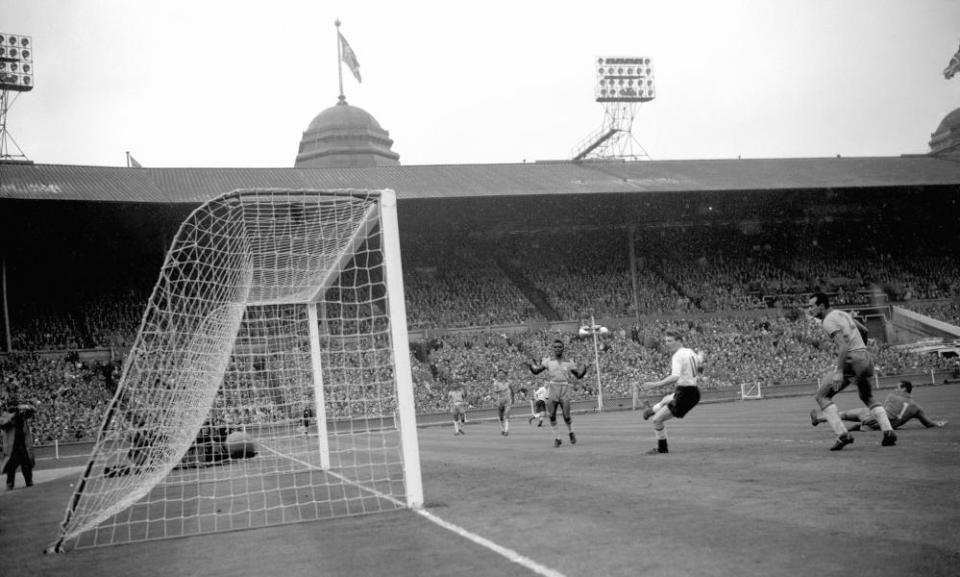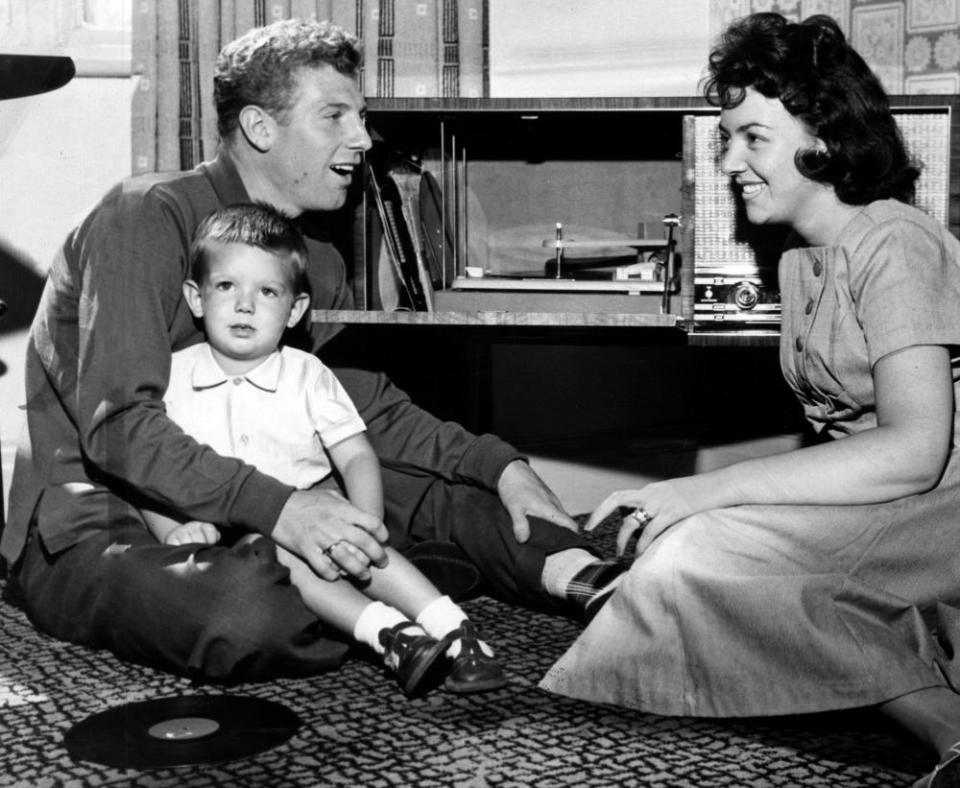Colin Grainger obituary

Although footballers have dabbled in the world of music for many years – chiefly via team songs or the occasional novelty hit single – few have had any real aptitude in that direction. Colin Grainger, however, had enough musical talent to allow him to make a living with his vocal cords as well as his feet.
An England footballer in the late 1950s, Grainger, who has died aged 89, combined his high-profile exploits for teams such as Sheffield United, Sunderland and Leeds with a parallel career as a crooning solo pop vocalist, earning himself the nickname of “the singing winger” and even a place on the bill with the Beatles in 1963. After he retired from football in 1966, he plied his trade on the club circuit.
Having performed with success in both professions, Grainger had little doubt as to which was the more taxing. “I was far more nervous before a gig than before a match,” he said. “In football you’re one man of 11, but in singing you’re one man of one.”
One of seven children, two of whom died of diphtheria, Grainger was born in the Yorkshire coalmining village of Havercroft, near Barnsley. His father, Daniel, worked down the pit, and his mother, Lily (nee Holliday), was a housewife. Colin sang in his early teens at the Havercroft working men’s club, where his father was concert secretary.
But he was also a good enough footballer at Felkirk secondary school to represent Barnsley Boys, alongside the future cricket umpire Dickie Bird, and began to think about making a living from the game when his older brother, John, signed for Rotherham.

Leaving school at 15 to work as a car mechanic, in 1949 he was invited for trials at the Division Three North club Wrexham, for whom one of his cousins, Derek Grainger, was already playing. Signed at the age of 16, Colin spent most of his first two years in the reserves, and then went away on national service with the RAF from 1951 to 1953.
He had played only five first team games on the left wing for Wrexham when he was transferred to First Division Sheffield United, where in a four-year spell at the club he became acknowledged as the fastest wide man in English football.
It was there, in 1956, that he received his first international call-up, making a spectacular England debut in a 4-2 friendly win against Brazil at Wembley, playing on the opposite wing to Stanley Matthews and scoring his first goal just four minutes into the game with his first touch of the ball. He followed up with a second shortly before full-time, heading in a Matthews cross.
By then Grainger had already begun to develop his singing, taking on a first professional engagement that year as a support act to the wholesome American group the Hilltoppers on their tour to the UK. His fame as a footballer raised Grainger’s profile still further, and soon there were guest appearances on television and radio, followed by a single, This I Know, in 1958, and a £250-a week contract with Music Corporation of America that took him on a summer tour of Britain.
By 1963 he was a big enough name to share equal pay, if not equal billing, with the Beatles as they appeared in back-to-back concerts one evening at the Palace Theatre Club in Stockport and then at the Southern Sporting Club in Manchester. Financial arrangements for the double-header had been set in stone several months earlier, before the life-changing success of the Beatles’ single Please Please Me, and so Grainger received the same £50 appearance fee as the Fab Four – only they had to split theirs four ways.
Generally, however, Grainger regarded football as his priority, and he did most of his singing in the off-season. When the Hilltoppers had asked him to join them on a US tour during the winter he had turned the offer down, even though it would have earned him substantially more than the £20-a-week maximum wage he was paid at Sheffield United. He later spurned the chance to tour Australia with the entertainer Nat Jackley because it would have interfered with pre-season training.
Having made five more appearances for England while at Sheffield United, in 1957 Grainger was sold against his wishes to First Division Sunderland. His new club were relegated at the end of his first season there, and partly as a consequence he won only one further England cap, in a Wembley win over Scotland that secured him a British Home Championship medal. He clocked up 120 league games for Sunderland from 1957 to 1960 before being sold to Second Division Leeds United, where he played alongside Jackie Charlton and Billy Bremner just before the heights of the Don Revie era.
However, a longstanding ankle injury had cut down his speed and agility, and the following year he was shipped out to Third Division Port Vale, who in turn sold him to Fourth Division Doncaster Rovers in 1964. Two years later, after a brief spell with non-league Macclesfield Town, he left the fray.
During the next four years Grainger concentrated on his singing career, playing in pubs and working men’s clubs before calling it a day in 1970, after which he worked as a regional manager for a cash register company and then as a sales representative for a firm of wine merchants. He continued to play football for fun, including for the Woolley Miners Welfare club from 1972 to 1978, and also acted as a part-time scout for Barnsley, Leeds, Huddersfield Town, Oldham Athletic, Bury, Sheffield United and Mansfield Town.
His wife, Doreen (nee Rowe), whom he married in 1956, predeceased him. He is survived by their children, Colin and Kim.
• Colin Grainger, footballer and singer, born 10 June 1933; died 19 June 2022

 Yahoo Sport
Yahoo Sport 





































